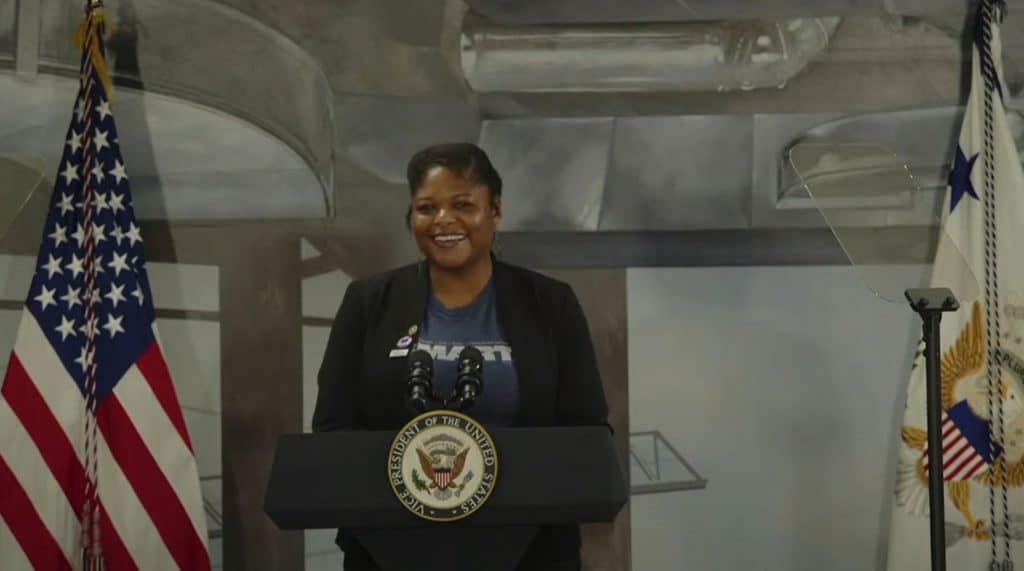Local 17 (Boston) sheet metal worker Adrian Mobley took her time entering the trade. She originally attended college on a full-ride soccer scholarship; after leaving to take care of her father, she became a nursing assistant for nine years. But that all changed when she entered the Building Pathways pre-apprenticeship program and met Local 17’s Shamaiah Turner.
“She’s awesome. She is a great mentor,” Mobley explained during a Women In Construction Week 2023 video profile. “She came in and talked to my class, [and] just seeing her and how passionate she was – I was like, ‘you know what? I want to be like her. I can do that.’”
The SMART video team followed Mobley through a typical workday, starting with her 5:40 a.m. commute and ending around 2:30 in the afternoon. She’s currently working on the South Station Terminal project in Boston, installing various pieces of duct. That project, she said, is indicative of what she enjoys about the trade.
“What I love about doing sheet metal is, honestly, driving past a building that I worked on and being proud, saying: Wow, I did that,” Mobley explained. “I love the welding aspect of it as well … putting the duct up, gunking, sealing, everything that comes with [sheet metal.] The camaraderie on the job … it’s fun, it’s exciting, it’s different.”
She also pointed out the outsized impact that her union membership has made on her personal life. Mobley worked for several different agencies throughout her tenure as a nonunion nursing assistant, and she never had the financial security to move out of her parents’ house. Even worse, none of those companies provided her with health or dental benefits. That all changed, Mobley noted, when she joined Local 17.
“I got into the union, and I stacked: saved money, saved, saved, and now I have a two-bedroom condo and I’m loving it. So I thank the union for that,” she said.
Along with the benefits of her SMART membership and her favorite parts about sheet metal work, Mobley discussed her experience as an apprentice, Tradeswomen Build Nations 2018 and more. She concluded her profile with a word of advice to the SMART sheet metal sisters of tomorrow:
“If a woman approached me right now wanting to get into sheet metal, I would tell her go for it. If you see me doing it, you can do it. I saw another woman doing it, and I convinced myself I could do it.”
